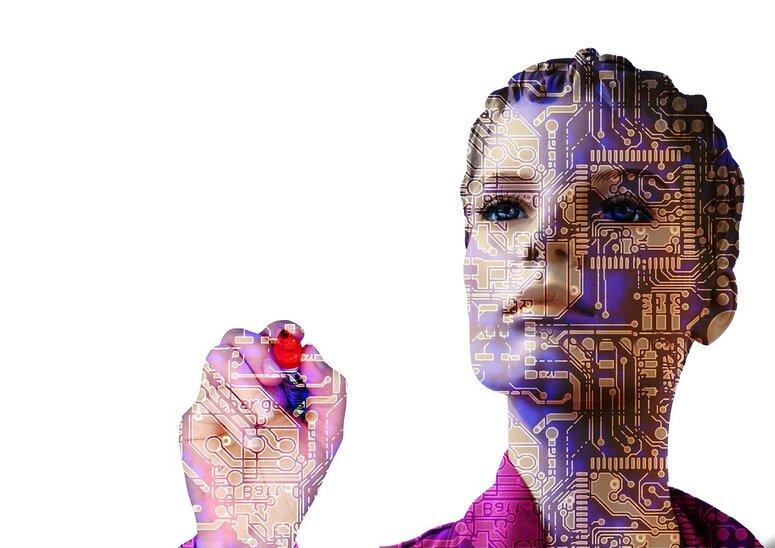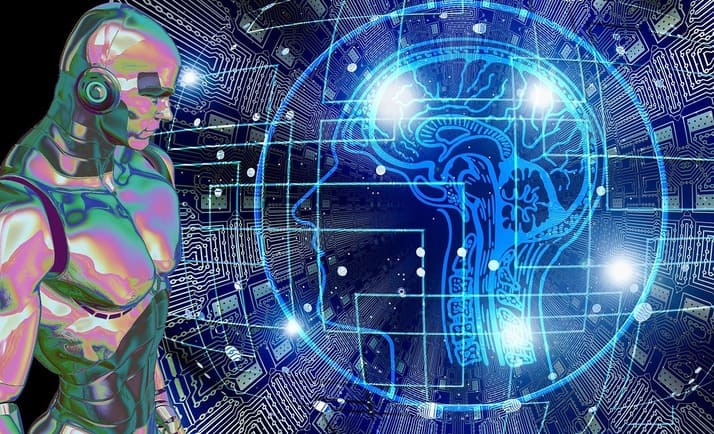
Web writing and AI: what are the risks ?
Artificial intelligence is a technology that will be part of our future. It has been developing considerably in recent years. At the moment, it has even become possible to write articles more easily using AI tools. The question is: is using AI to write web articles relevant? Doesn’t it carry risks? We tell you about it in this article.
Can artificial intelligence really write articles for the web ?
The answer is YES. AI has the ability to write articles for the web. You just have to choose the right platform and the best AI writing solution. Then you have to formulate a specific query. The AI solution will generate a result in the form of written content that will inform you in detail about the desired topic.
One of the most relevant and popular solutions in this respect is ChatGPT. This system uses the IA Generative Pre-trained Transformer or GPT programming language to produce web content. However, it should be noted that depending on your query, the result may or may not be of high quality. It may be a summary text that needs to be corrected at length, or a fairly complete article. This will depend on the amount of information that the AI was able to process and analyze on the Net (deep learning associated with AI-assisted writing). This is where the risks can be appreciated. Especially since solutions like ChatGPT are still in the testing phase and a “prototype” model.
Does AI have the ability to reference articles and optimize them ?
Although AI-assisted writing can be used to produce articles for the Net, it is not yet proven in terms of SEO. Moreover, optimizing an article to meet the requirements of search engines and web users requires specific skills and know-how.
In other words, ChatGPT and its alternatives are not yet able to work on the SEO of an article intended for the Web. Indeed, the principle of deep learning is to analyze in bulk the information that the AI software collects on the web. After this deep learning, the solution will only reformulate or take up the ideas, and sometimes even the words, in the other content it has collected and analyzed. This does not involve consideration or integration of keywords or hyperlinks.
In addition to these points, search engines tend to evolve their algorithms over time and according to market needs. A human intelligence such as an SEO writer has the ability to adapt with the recurrent changes of the search engines’ algorithms, and this, in perfect autonomy. In the case of an AI tool, it is essential that the developer of the solution makes updates for the adaptation to take place. If we take the example of Google, the SEO guides of this search engine are mostly based on subjective parameters. An artificial intelligence will have difficulty interpreting them.
If we are talking about SEO writing, the risks are there. It is true that articles can be generated, but the consideration of SEO is not yet perfected. However, as AI is an evolving technology, it can be envisaged that it will greatly support the tasks of human SEO writers in the near future.
Google and articles produced by Ais
Google has a mission statement: “to make safe and reliable information available to users. If this is the case, the search engine may ban articles produced by AIs such as ChatGPT. Indeed, when a tool like ChatGPT generates a text, it is not uncommon for the article to be of poor editorial quality. There are many mistakes and errors.
Google wants to satisfy its users as much as possible. Therefore, when it presents the search results in the SERP, it ranks them according to the relevance of the content of each page, depending on the target query. Thus, if a piece of content is of poor quality, Google’s robots will downgrade it or demote it. Only quality articles, well referenced and written by competent SEO writers will be highlighted.
Google also tends to penalize duplicate articles, or articles that are substantially identical to another. The search engine’s robots analyze each piece of content and highlight the ones that are original. This is not the case with articles generated by an AI. The latter come from other sources on the Net. The risk of plagiarism is therefore present.
What happens if you publish an article produced by AI ?
Plagiarized content
The first risk if you publish an article generated by artificial intelligence is plagiarism. You should be aware that a specific topic or theme can be covered thousands of times on thousands of websites. A human SEO writer has the know-how to sort through the information and produce another article on the same topic, but with a different approach and 100% unique text. An AI will compile the information it has gathered from the web. It will then put together the ideas and words used to produce an article. The result will not be 100% original.
However, having completely original content is important in the SEO aspect. Search engines detect even the slightest plagiarism. They will then penalize plagiarized content. In terms of marketing, original content also has more impact on users than content with duplicated parts. Internet users tend to be suspicious of pages with duplicate articles.
An article with many errors and mistakes
Most of the time, the articles produced by AI solutions are perfect in terms of grammar and syntax. The problem lies in the ideas and information. They can be repetitive and sometimes not up to date. It is even possible that the AI provides you with incorrect data. Moreover, you have to be careful with these points, as for the most famous AI writing tool, ChatGPT, its developer OpenAi clearly states on its website that this solution is in the testing phase. It also mentions that information dating after 2021 is not yet taken into account by the solution. There is therefore a risk that the data used may be obsolete or false.











